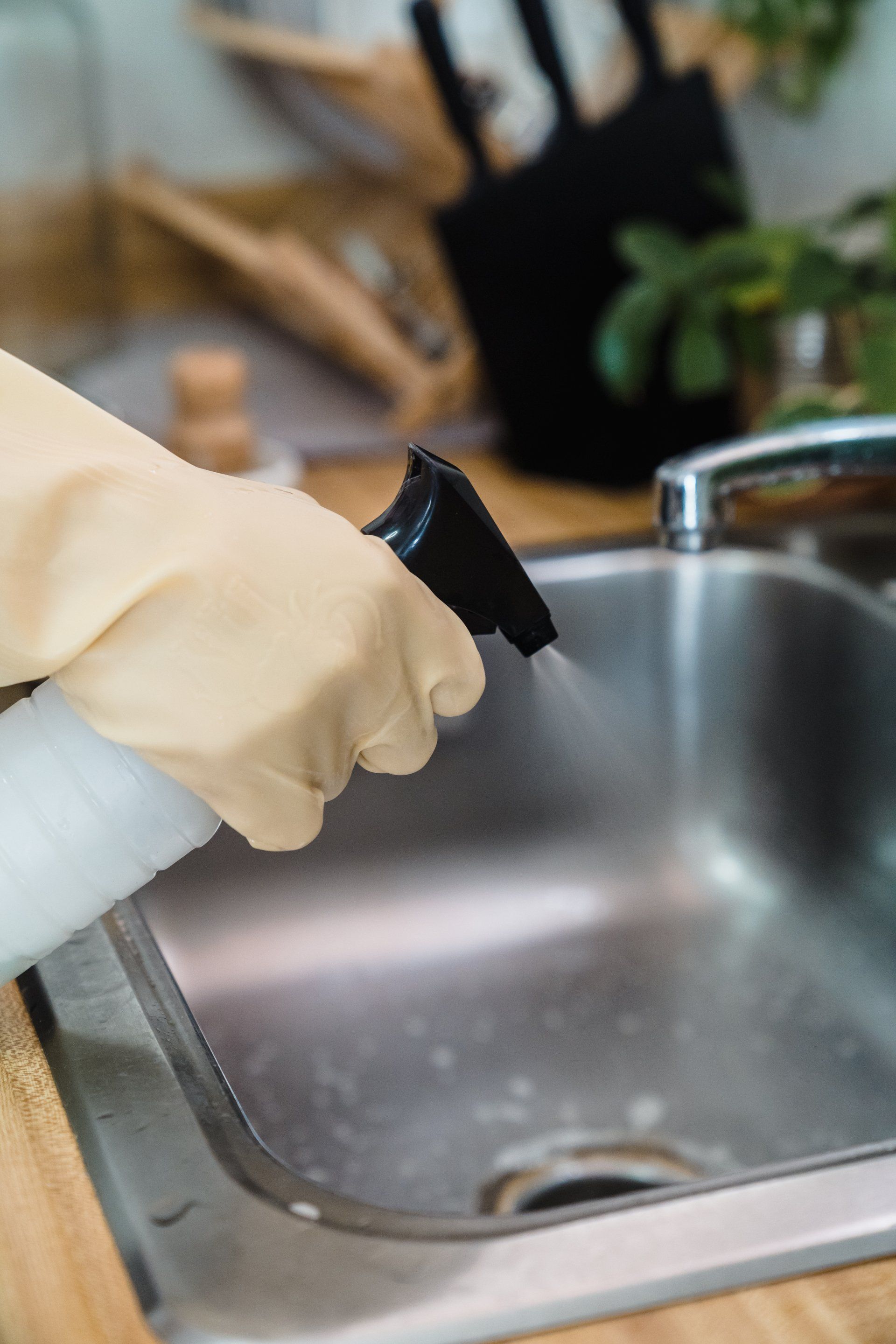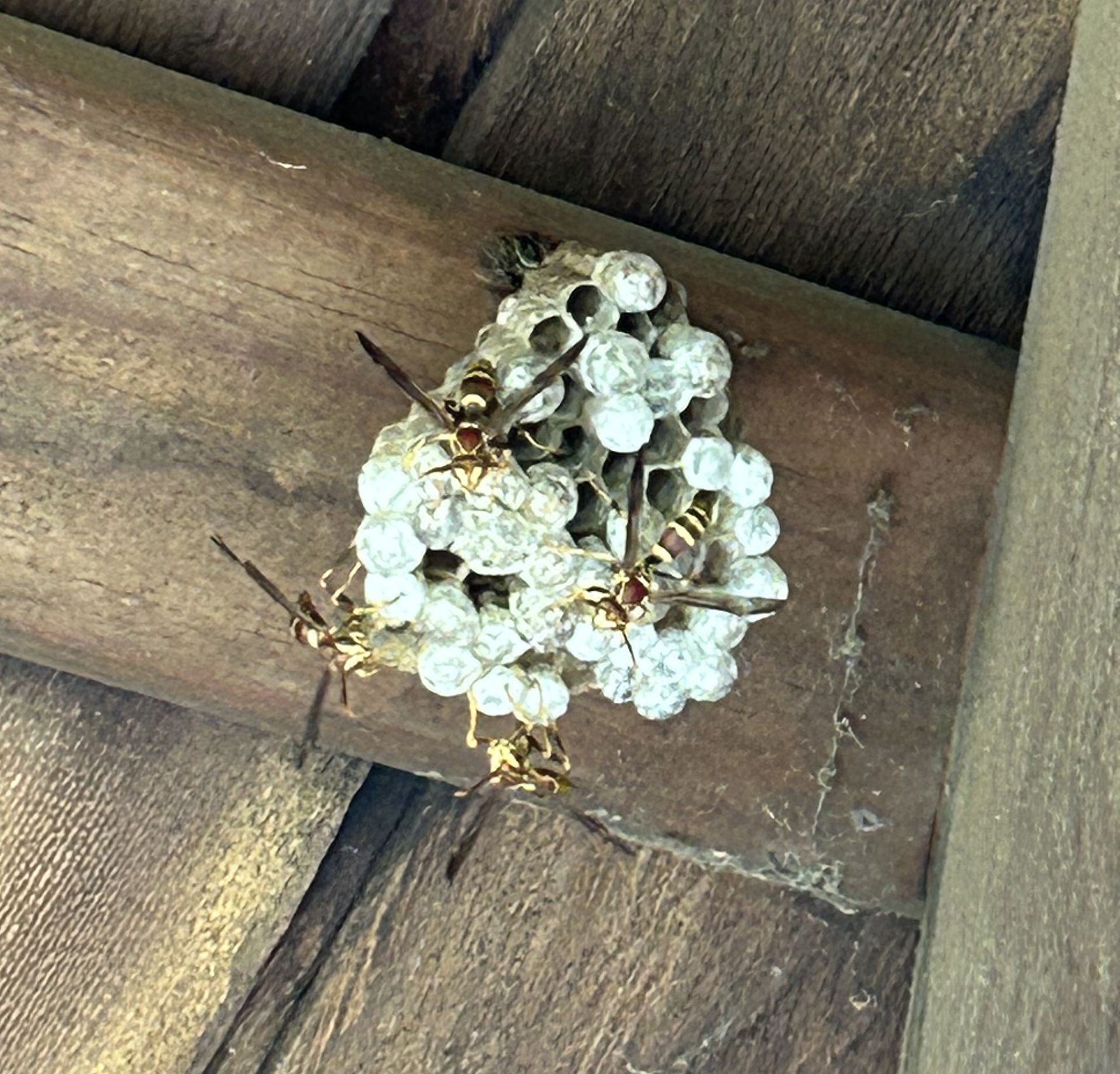Serving Lancaster County PA and the Surrounding Area
Stinging Insect Control & Treatment
No one wants stinging insects invading their home, and if you live in Central Pennsylvania, you know that wasps, yellowjackets, bees, and hornets can pose significant threats. Understanding the behavior and properly identifying these stinging insects is crucial to effectively remove them and prevent future infestations.
The good news is, Keystone Pest Solutions can handle ANY stinging insect problem you have. Our treatments are designed to effectively, professionally, and affordably remove these dangerous pests from your home. Whether it’s a nest in your attic, garden, or any other part of your property, our experienced technicians will inspect and treat the source of the stinging insect problem.
Stinging insets causing a problem? We can help!

Common Stinging Insects We Can Help With
In Central Pennsylvania, yellowjackets are the most common stinging insects and are responsible for the majority of stings to humans. These insects are particularly aggressive and are known for their painful stings, which they can inflict multiple times (Penn State Extension). Yellowjackets are often mistaken for bees due to their black and yellow bodies but are actually a type of wasp.
Bees & Bumblebees
Bees, including honey bees and bumble bees, are also prevalent throughout Central Pennsylvania. Serving an essential role as pollinators, honey bees can sting only once, as their barbed stinger gets lodged in the skin, whereas bumble bees can sting multiple times but are generally less aggressive. Either way, bees can be safely removed from your home or property. Ask about how we can help!
Hornets
Hornets are characterized by their large size, black bodies, and white-patterned faces. They are highly aggressive, particularly when their nests are disturbed, and their stings can be quite painful. Hornets generally pose a significant threat due to their aggressive nature and ability to sting multiple times. Their nests can house hundreds to thousands of individuals, making professional removal essential for safety and effectiveness.
Wasps
Wasps, such as paper wasps, and hornets, like the bald-faced hornet, are also common. Paper wasps are known for their umbrella-shaped nests and are less aggressive compared to yellowjackets and hornets. Bald-faced hornets, also a type of wasp, are very aggressive and build large, enclosed nests typically found in trees or on buildings (Insect Identification). It's best to contact a local pest control expert if you need help with aggressive wasps!
Yellowjackets
Yellowjackets are responsible for the majority of stings to humans in the region. Yellowjackets typically build their nests in concealed locations such as underground burrows, wall voids, and attics. Their nests are made of a paper-like material created from chewed wood fibers mixed with their saliva. Yellowjacket colonies can house thousands of workers by the late summer and early fall, which is when they are most active and likely to come into conflict with humans
A Local Pest Control Company You Can TRUST!
Call us at (717) 653-1068 or request a consultation today.
Common Stinging Insect Control Methods
Natural Stinging Insect Control and DIY Solutions
Many homeowners prefer to try natural methods to remove stinging insects from their property or home before calling a professional pest treatment company. Here are two common DIY solutions you can consider for stinging insects:
Common Stinging Insect Control Methods
Natural Stinging Insect Control and DIY Solutions
Many homeowners prefer to try natural methods to remove stinging insects from their property or home before calling a professional pest treatment company. Here are two common DIY solutions you can consider for stinging insects:
Homemade Traps
Creating traps using simple household items can effectively reduce the population of stinging insects around your home. For wasps and yellowjackets, you can use a homemade trap made from a plastic bottle. Cut the top off the bottle and invert it into the bottom section, creating a funnel. Fill the bottle with a mixture of sugar water, fruit juice, or soda to attract the insects. Once they enter the bottle, they will have difficulty escaping. This can work well for wasp and yellowjacket populations around your home.
DIY Sprays & Chemicals
Using oils like peppermint, clove, or lemongrass can naturally repel stinging insects. Combine a few drops of the oil with water in a spray bottle and apply it around potential nesting sites, entry points, and areas where insects are commonly found. Peppermint oil, in particular, is known to be an effective deterrent for wasps and hornets. Regularly spraying these areas can help keep the insects at bay and prevent them from establishing nests.
Of course, we want to help with your stinging insect problem but it’s always a good idea to try natural solutions. They can be effective but might not always offer long-lasting control as compared to our professional pest control treatment. Additionally, some methods, like essential oils, may require repeated applications and might not be suitable for all situations.
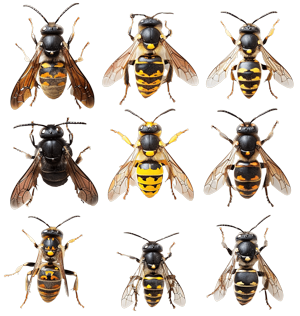
Soap & Water: Traditional Solutions
We briefly covered sticky traps, like using soda or sugar water. We'e also mentioned peppermint oil but what have people been using for decades to help control stinging insects in or around their home? Soap and water solitions!
A mixture of dish soap and water can be an effective, non-toxic way to eliminate wasps. The soapy water creates a film around the insects, preventing them from flying and causing them to suffocate quickly. To use this method, mix two to three cups of water with half a cup of dish soap in a spray bottle and apply it to the nest. For ground nests, pouring boiling soapy water into the nest entrance can effectively eliminate the colony. USE CAUTION! Wasp and hornet nests or colonies can be very aggressive. We can take care of your stinging insect problem if you're located in central PA. We provide free estimates, are highly rated, and offer affordable pest control solutions.
Professional Wasp, Hornet, Bee, & Yellowjacket Control
- If you have stinging insects in or around your home, you may want to consider calling a professional exterminator to safely and effectively address these insects.
- Sometimes, despite your best efforts, wasps, hornets, yellowjackets, and bees can be persistent. Without the proper treatment, DIY solutions may not be enough.
When To Call a Professional Exterminator
While DIY methods can be effective for small nests, it's important to consider your personal safety and the safety of those that you love when it comes to treating stinging insects. If you have an allergy or suspect that you may have an allergy to stings, you should never attempt to treat or remove stinging insects on your own. We have the expertise and specialized tools to locate and eradicate stinging insects, and can ensure a complete and safe solution to your wasp, hornet, bee, or yellowjacket removal.
Frequently Asked Questions About Stinging Insects
What types of pests are included in the stinging insect category?
Stinging insects commonly include bees, wasps, hornets, and yellowjackets. These insects use their stingers primarily for defense and can pose significant risks, especially if their nests are disturbed.
How safe is the treatment for my kids and pets?
All of our chemicals or materials are applied safely, professionally, and according to label instructions. The safety of our clients, their families and pets is our number one concern at Keystone Pest Solutions! We will safely treat your stinging insects while protecting you and those you love.
Should you remove bee or wasp nests by yourself?
It is generally not recommended to remove stinging insect nests yourself due to the risk of provoking an aggressive response from the insects which may result in multiple stings. Our professional stinging insect control services are equipped with the proper tools and protective gear to safely and effectively remove nests.
What are the signs of s stinging pest infestation?
Consistent sightings of stinging insects, especially in groups, can indicate a nest nearby. You may also hear buzzing or scratching noises if the nest is hidden within wall voids or attics. It's important to monitor areas like eaves, roof gables, trees, shrubs, and underground burrows for signs of nesting activity.
What can you do to avoid attracting stinging insects?
To prevent attracting stinging insects, keep outdoor garbage bins covered, clean up food and drink spills promptly, avoid wearing strong fragrances and bright-colored clothing, and maintain your yard by trimming vegetation and sealing cracks and crevices in your home’s exterior.
How much does your pest control cost?
All of our pest control services are affordably priced based upon the size of the structure we are treating. Our quarterly pest control program pricing is based on the number of linear feet around the exterior perimeter of the building. Quarterly services start at $98.00 (plus tax) per service. One-time treatments start at $159.00 (plus tax).
Our Happy Pest Control Customers!
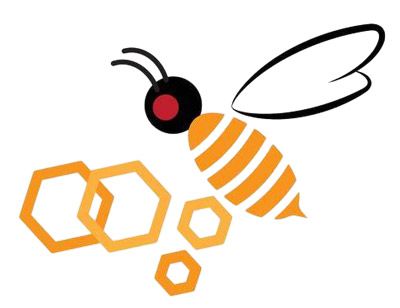

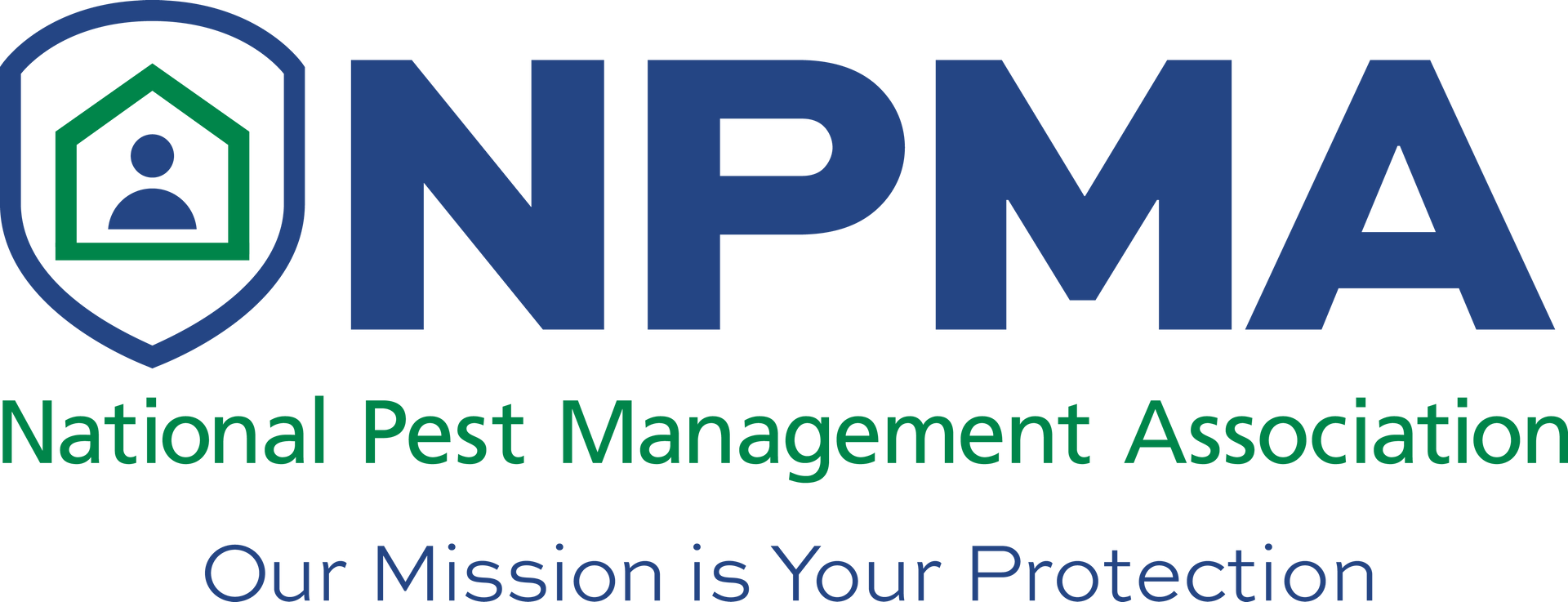
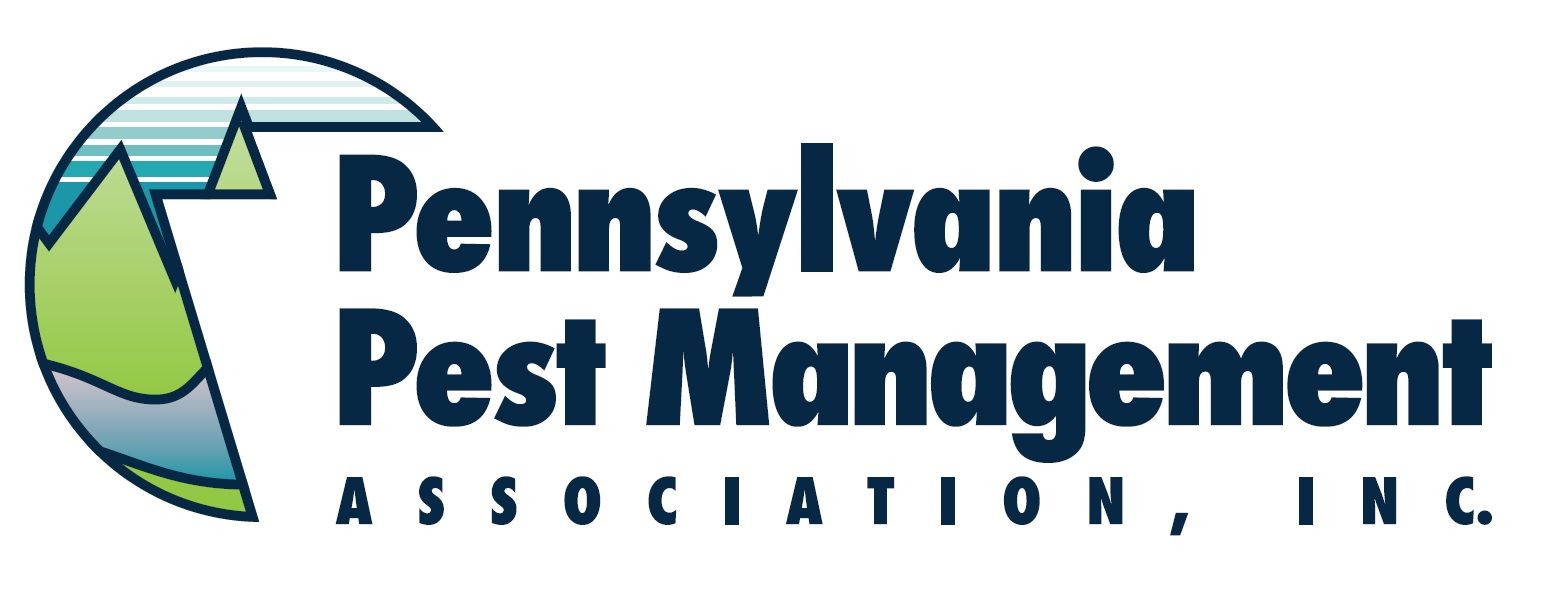

Scan Our QR Code To Easily Leave Us a Google Review. Thank You For Your Support!
All Rights Reserved | Keystone Pest Solutions LLC
Website & Hosting by SovoWeb a division of RedXWebDesign


